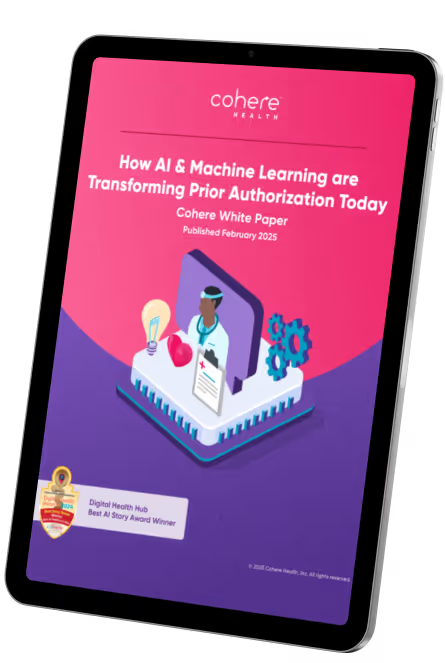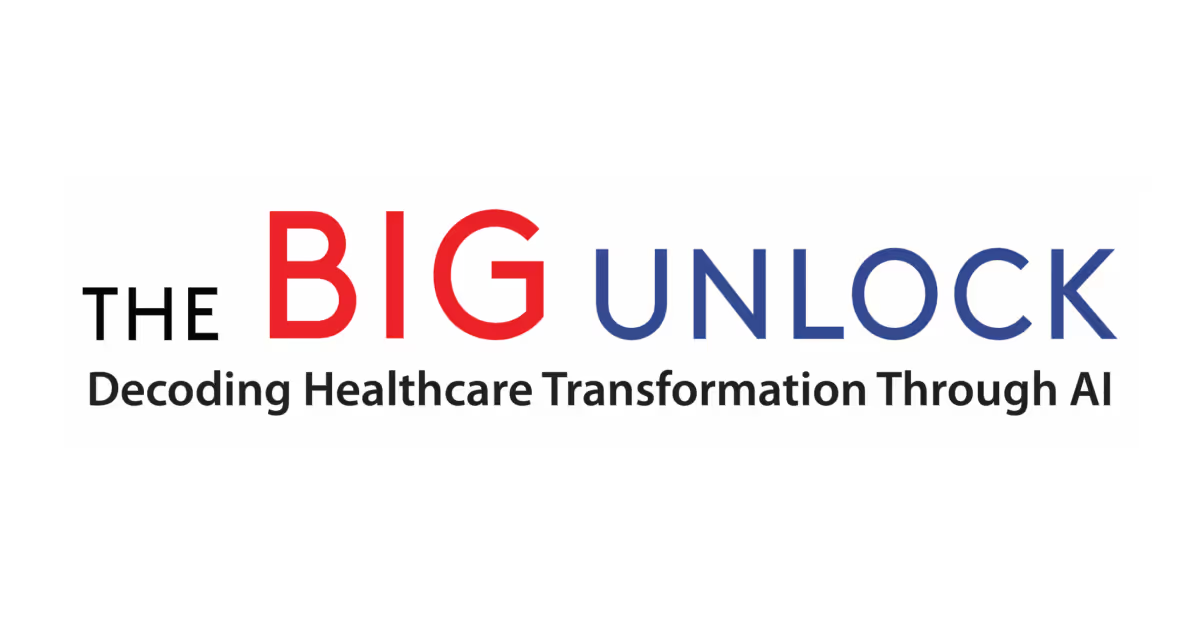Why AI must be clinically trained to transform the prior authorization process
Published:
November 10, 2025

Beginning in January 2026, sweeping changes to prior authorization will take effect. Federal mandates will require health plans to digitize the exchange of clinical documentation, meet new turnaround times–seven days for standard requests, 72 hours for urgent–and maintain performance transparency through new reporting standards. These mandates, along with recent public commitments from AHIP, HHS, and health plans nationwide, are long overdue.
However, speed or automation alone won’t resolve the deeper issues that have plagued prior authorization for years. To meet these goals, plans need to use AI to support automation, but generic AI isn’t enough. Legacy systems often cause delays and administrative burden, frustrating providers with opaque decision-making, inconsistent guidelines, and time-consuming back-and-forths. Without clinically trained, patient-centric AI, automation risks digitizing the same roadblocks instead of solving for them.
Why generic AI falls short in clinical decision-making
Legacy prior authorization is more than an administrative problem; the underlying systems don’t reflect real-world clinical practice or evidence-based care. In fact, the AMA found that almost 1 in 3 physicians reported prior authorization criteria are rarely or never evidence-based. AI can play a central role in modernizing these legacy systems, but unless it’s clinically trained and nuanced, it will fall short.
Most AI tools used for utilization management today are optimized for speed or automation alone, not clinical reasoning or patient context. Trained only on web or claims data, these tools can replicate patterns, but lack the nuance to evaluate each patient and case individually. Unlike “robotic” approaches built on general-purpose AI, clinician-trained AI is clinically grounded, assessing each case as a physician would by considering the patient’s unique characteristics, treatment history, and care needs.
A different kind of AI
To truly transform prior authorization, health plans will need more than just automation or digitization. That’s why many plans are turning to AI that is purpose-built for healthcare. Developed in partnership with clinicians, it ingests and interprets unstructured patient data, follows evolving care guidelines, and evaluates cases individually–ensuring decisions reflect both evidence and the individual needs of every patient.
Rather than applying generic automation to every case, responsible clinical-grade systems support each step of the prior authorization process with continued physician input. These platforms can extract key clinical information, flag missing documentation, compare requests against evidence-based criteria, and escalate complex or pended cases to real clinical reviewers. This can all be done within providers’ existing workflows, to ensure every decision reflects the same clinical reasoning a physician or nurse would apply.
Written by

Gigi
Yuen, PhD
Gigi Yuen serves as Cohere Health’s Chief Data & AI Officer, leading the data organization, which includes data management, data science, machine learning/AI, and business intelligence.
Gigi has more than 20 years of experience leading cross-functional teams in data solution innovation. Prior to joining Cohere Health, she established the first-ever AI and Analytics function in Availity. At IBM, Gigi was recognized as a Distinguished Engineer. She became one of the first data scientists to receive this designation that is reserved for only the top 0.2% of technical staff in the global firm. Additionally, she led R&D for Watson Health’s $100M+ analytic portfolio where she drove advancements in patient care, real-world evidence research, and actuarial modeling. Gigi is an author of more than 15 peer-reviewed publications and has nearly 20 patents granted or pending.
Gigi holds a bachelor’s, master’s, and Ph.D. in Engineering from Northwestern University.
Stay ahead with expert insights on transforming utilization management and payment integrity—delivered straight to your inbox.
Why AI must be clinically trained to transform the prior authorization process




